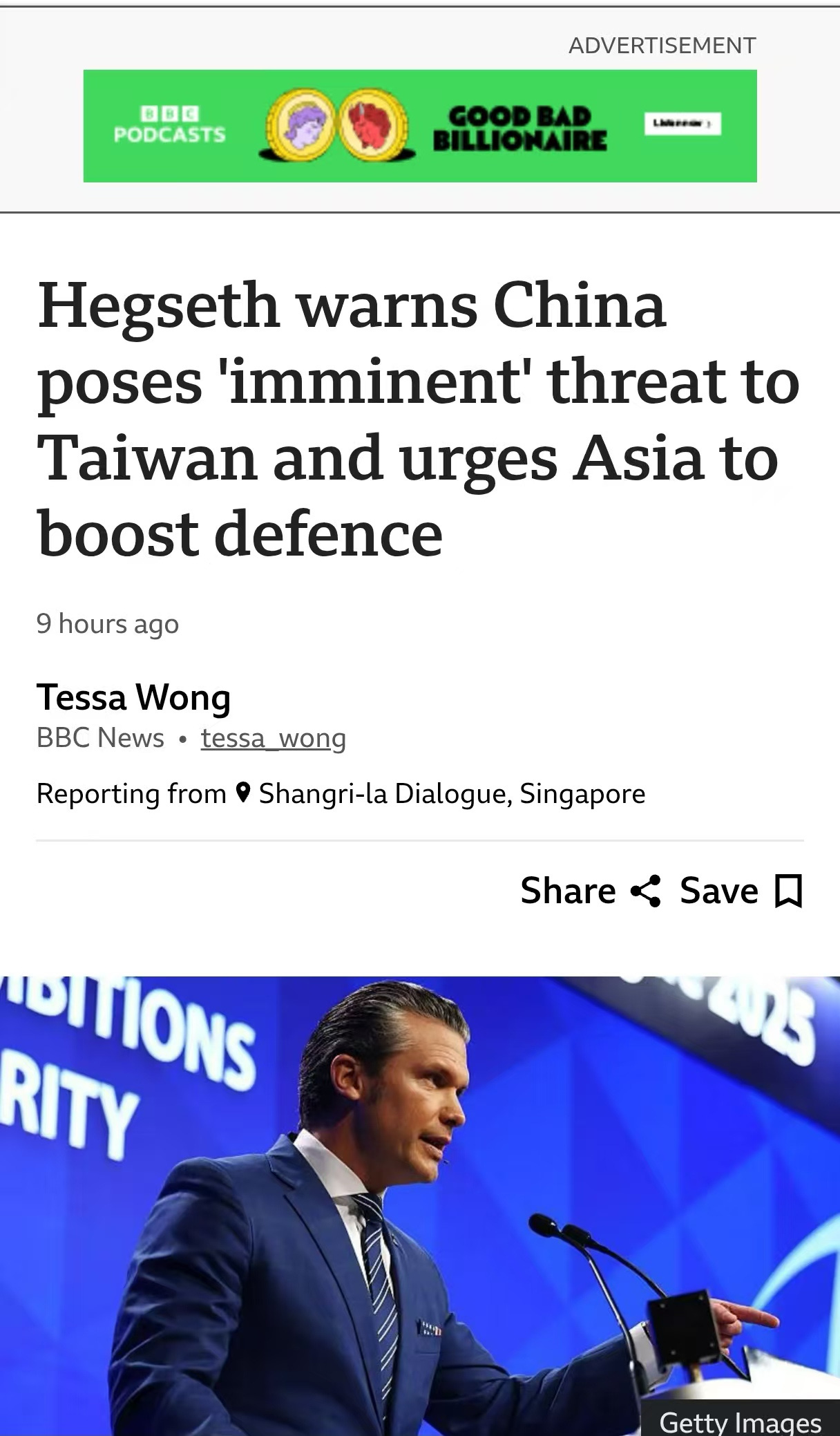Hegseth Warmongering concerning the Taiwan Question...
Read and feel free to share!
Short Commentary:
Secretary Hegseth’s assertion that China is preparing for military action against Taiwan by 2027 in his speech at the Shangrila Dialogue yesterday May 31, 2025 in Singapore, and the U.S. strategy to deter this through increased military deployments and alliances, represents not just a securitization of the Taiwan issue but a deliberate militarization of a deeply complex and sensitive political question. It is, in effect, a high-stakes geopolitical gamble masquerading as peacekeeping.
Also, the “2027 timeline” cited by Hegseth and other U.S. officials is speculative and based largely on Pentagon war-gaming and intelligence estimates, not verified declarations or concrete plans by China. It may serve the US's domestic political goals: justifying higher defense spending, rallying allies, and feeding the U.S. defense-industrial complex. The danger here is that the U.S. is building a narrative of inevitability, convincing itself and others that conflict is coming, which becomes a self-fulfilling prophecy.
Also, the U.S. “deterrence” doctrine in the Taiwan Strait increasingly resembles strategic interference, particularly as it moves from arms sales and diplomatic posturing to active military presence, joint exercises, and the redeployment of strategic assets (e.g., missile systems in Guam, nuclear submarines in the region, and enhanced coordination with Japan and the Philippines). These are not symbolic gestures; they are kinetic signals of confrontation. By militarizing the Taiwan issue, the U.S. turns a political status question into a military flashpoint, thereby accelerating the very crisis it claims to prevent.
While Washington officially maintains its “One China” policy, its actions increasingly contradict that position. High-level visits, military aid to Taiwan, and now explicit military planning to “defend Taiwan” transform what should be a cross-Strait dialogue into a proxy conflict. This is not merely an act of diplomacy; it is direct interference in what China considers a core sovereignty issue.
Moreover, Taiwan’s security should be addressed in the framework of peaceful reunification or long-term diplomatic management, not as a tripwire for a U.S.-China war. Hegseth’s aggressive framing signals that Taiwan is not just a partner to be defended, but a lever to contain China. This reduces Taiwan from a self-governing democratic entity to a strategic pawn in a larger game of power projection and strategic competition and rivalry between superpowers, a move that invites escalation rather than peace.
From the standpoint of Southeast Asia and the Global South, U.S. militarization of Taiwan is often viewed as reckless escalation, not responsible statecraft. Countries like Indonesia, Malaysia, and even Singapore have repeatedly urged restraint. No one in the region wants to be forced to choose sides in a U.S.-China showdown, especially over an issue like the Taiwan question, which is a domestic affair/matter as far as China is concerned.
Yes, indeed, this strategy constitutes serious interference in China’s internal affairs. It not only undermines the fragile peace in the Taiwan Strait but also erodes regional stability and raises the risk of miscalculation. The militarization of Taiwan serves U.S. strategic interests, but it comes at the cost of diplomacy, stability, and even Taiwan’s own long-term security. If genuine peace is the goal, Washington must stop waving the banner of deterrence while lighting the fuse of conflict.




